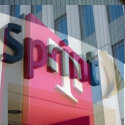Each day of the antitrust trial against Sprint and T-Mobile brings new revelations, including an attempted merger between T-Mobile and Dish Network in 2015 and MVNO negotiations between Comcast and Sprint in 2017.

As the "antitrust trial of the century" careens toward the end of its first full week, the revelations keep coming.
Based on reports from the proceedings, T-Mobile CEO John Legere testified that he attempted to ink a merger with Dish Network in 2015. Separately, Comcast's Sam Schwartz said the company contemplated an MVNO deal with Sprint in 2017 that would have given Sprint access to Comcast's wired network for cell site backhaul. Neither deal panned out.
And if that's not enough juicy telecom intrigue for you, earlier in the week Deutsche Telekom's Timotheus Höttges testified that the rumors in 2017 that Amazon was considering a partnership with Charlie Ergen's Dish Network were in fact "another one of Charlie Ergen's stupid bluffs."
All of these developments ultimately brought Sprint and T-Mobile together in the summer of 2018 for a proposed merger. That transaction is now at the heart of a major antitrust trial that started this week in New York City. Roughly a dozen Democratic state attorneys general (AGs) oppose the merger, arguing it will reduce competition in the US wireless marketplace. Lawyers for Sprint and T-Mobile, meanwhile, contend that the combined company will incite more competition with a broader 5G network and that the deal will also ultimately position Dish Network as a replacement for Sprint as a fourth nationwide wireless network operator.
There's no telling what might happen, but that hasn't stopped a wide range of observers from desperately seeking clues as to which way the judge in the case might be leaning:
"A lawyer for the company [T-Mobile], discussing some procedural points, said 'We're not, at this moment, moving for any sort of judgment as a matter of law, unless your Honor were to invite us to do so,' " wrote the Wall Street analysts from New Street Research, in recounting a scene from yesterday's courtroom proceedings. "The judge quickly said, 'I'm not.' "
Concluded the analysts about this exchange: "We should not read too much into that but it does appear that the states have succeeded in establishing the harms, so that, in our view, the companies [Sprint and T-Mobile] have to win the case with their witnesses and/or in their cross of other state experts, particularly the experts on efficiencies."
Aside from such legal and behavioral minutia, the one concrete takeaway so far from the proceedings is that there's enough drama in the telecom industry to rival the best '80s-era soap opera:
Legere courts Ergen
As reported by Cnet, Legere in 2015 proposed a merger between T-Mobile and Charlie Ergen's Dish Network, which still owns a vast trove of unused spectrum. The T-Mobile CEO said he liked the idea of "un-carriering" Dish's satellite business, and wanted to combine Dish's spectrum with T-Mobile's holdings.
But Ergen played hard to get. "Mr. Ergen is perceived as one of the toughest negotiators," DT's Höttges testified, according to Lightshed analyst Walter Piecyk.
Legere agreed. "Brutal. Angering," is how he described negotiating with Ergen, according to Piecyk. "Mr. Ergen did enjoy my broad vocabulary," Legere added, likely referring to his liberal use of swear words.
"It's like any other jealous child -- if you can look over at somebody else's toys, you really wish you had them," Legere testified of his discussions with Dish, reported Bloomberg.
Ultimately the two parties couldn't agree on a price. And Legere testified that Ergen believed that T-Mobile would "disintegrate" without Dish's spectrum. T-Mobile, however, has solidified its position as a viable challenger in the wireless industry -- a situation reflected by the fact that T-Mobile's share price is now roughly double what it was in 2015. Ergen is expected to appear in court next week.
Legere concluded that he isn't sure whether he would attempt to rekindle negotiations with Dish if T-Mobile is unable to merge with Sprint.
Comcast courts Sprint
As noted by Lightshed's Piecyk, Comcast's Schwartz testified that he met with Sprint's Marcelo Claure and SoftBank's Masayoshi Son in May of 2017. The executives discussed the possibility of Comcast selling mobile services over Sprint's network and, concurrently, allowing Sprint access to Comcast's wireline network so that Sprint could improve its wireless network.
The revelations are noteworthy considering Sprint inked an MVNO agreement with Altice in November of 2017 that allowed Sprint to gain access to Altice's wireline network for cell site backhaul. And Comcast launched its Xfinity Mobile MVNO on Verizon's network in April 2017.
According to the New Street analysts, Schwartz this week testified about the difficulties of competing as an MVNO and how Comcast would like to do an Altice-like MVNO deal with Sprint. "We think the purpose of the testimony was three-fold," the analysts wrote. "First, it lays a foundation for challenging the argument that Dish, as an MVNO, can be a vibrant competitor. Second, it challenges the notion that a stand-alone Sprint will not be a competitive influence in the market. Third, it reinforces the idea… that the real purpose of the deal is a defensive move to prevent more competition from cable's wireless efforts. We think it was largely successful and the cross-examination did little to undercut its points."
Schwartz also testified that Comcast is still interested in an MVNO with Sprint and/or T-Mobile. He said Comcast has reached out to both companies since their merger agreement last year, but has received no response, according to Piecyk.
— Mike Dano, Editorial Director, 5G & Mobile Strategies, Light Reading | @mikeddano
About the Author(s)
You May Also Like










